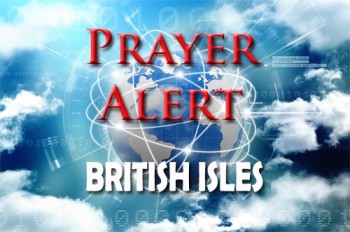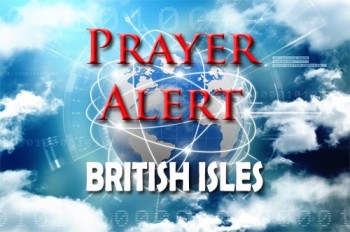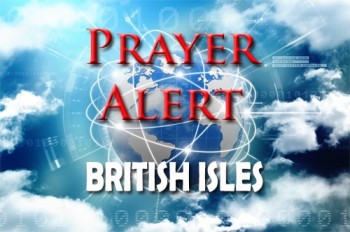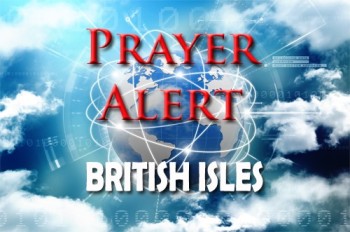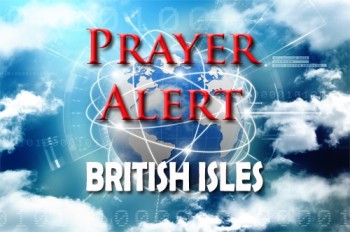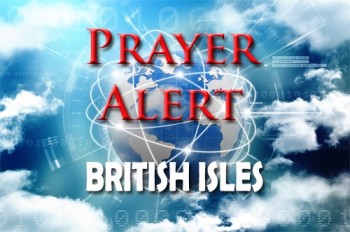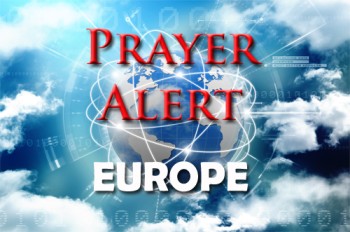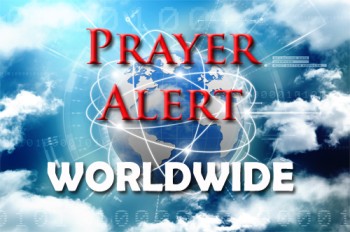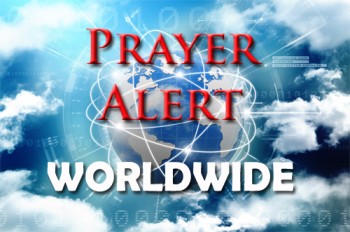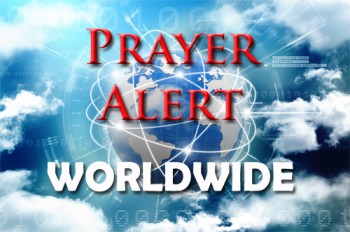
EU 'the biggest prize', Reeves says
Rachel Reeves has described closer trade relations with the EU as 'the biggest prize' for the UK economy, signalling Labour’s desire for further alignment with Europe. She said that while deals with India, the USA, and other nations are welcome, none compare in scale to improving trade with the EU, which accounts for nearly as much UK trade as the rest of the world combined. She favours removing barriers for businesses and rebuilding trust with European partners, citing renewed participation in the Erasmus programme and plans for a Youth Mobility Scheme as signs of progress. Though Labour’s manifesto rules out rejoining the single market or customs union, several senior figures have suggested deeper integration could boost growth. Critics accuse the Government of attempting to dilute Brexit, warning against surrendering tariff control or repeating complications seen in other customs arrangements.
Police probe into claims that a woman was sent to UK for sex with Andrew
Thames Valley Police have confirmed they are assessing fresh allegations that a woman was allegedly sent to Windsor in 2010 for 'sexual purposes' involving Andrew Mountbatten-Windsor. Officers are liaising with US law enforcement after reports linked to the late Jeffrey Epstein resurfaced. They say that no formal complaint has been made directly to them by the woman or her lawyer, but they are following established procedures and taking the matter seriously. Mountbatten-Windsor has repeatedly denied any wrongdoing. Two other women have previously alleged they were sent to the UK in connection with Epstein, one being Virginia Giuffre, who claimed this happened in 2001. Police are also assessing email messages which appear to show that confidential documents were shared with Epstein during Andrew’s time as trade envoy. Former prime minister Gordon Brown has urged a thorough re-examination of earlier investigations.
Latest vetting row raises fresh concerns over Starmer's judgement
A fresh political row has raised new questions about Keir Starmer’s judgment following controversy over the appointment of Lord Matthew Doyle to the House of Lords. Former Downing Street communications director Tim Allan has stated he informed the prime minister about Doyle’s past association with Sean Morton, a convicted sex offender, before Doyle was offered a peerage. Allan said Doyle admitted believing Morton’s claims of innocence prior to conviction but did not disclose campaigning on his behalf. Lord Doyle has apologised for an 'error of judgement' but has declined further comment. There has been considerable unrest within Labour, with MPs voicing concern that repeated vetting controversies are damaging public trust. Comparisons have been drawn with the criticism surrounding Lord Mandelson’s appointment, prompting calls within the party for stronger scrutiny of honours and peerages. With parliament entering recess, pressure remains on the prime minister to reassure colleagues and the public that due diligence and safeguarding standards are being handled responsibly at the highest levels of government. See
Economy grows by worse-than-expected 0.1%
The UK economy grew by just 0.1% in the final quarter of 2025, below the 0.2% forecast by many economists, according to the Office for National Statistics. The figure mirrors growth in the previous quarter, reinforcing concerns that the economy remains sluggish. The services sector showed no growth, manufacturing provided the main boost, and construction recorded its weakest performance in over four years. If measured per head of population – a clearer indicator of living standards – output declined across the second half of the year. Although overall growth for 2025 slightly exceeded that of 2024, unemployment has risen to 5.1%, and small businesses report pressures comparable to the Covid period. Investment is reportedly restrained by higher employment costs and global uncertainties, including international trade tensions. Rachel Reeves defended the Government’s economic plan, highlighting falling inflation and interest rate cuts. However, economists warn that policy clarity and stable foundations are essential if growth is to strengthen meaningfully in 2026.
Inquests show spread of deadly synthetic drugs
Highly potent synthetic opioids known as nitazenes are being linked to a growing number of deaths across the UK, with 286 inquests connected to the drugs by March 2025. Experts warn they can be many times stronger than heroin and are often mixed into other substances without users’ knowledge. In many cases, people believe they are taking prescription painkillers or heroin, only to ingest a far more dangerous substitute. Gus, aged 21, died after unknowingly taking a tablet sold as oxycodone which contained a nitazene. His mother Nicola said she had never heard of the drug before reading his post-mortem report. Most recorded deaths were accidental, predominantly involving men, and often linked to polydrug use. Vulnerable groups, including those with unstable housing or mental health conditions, are disproportionately affected. Authorities believe nitazenes are being smuggled in small quantities by post and mixed for profit. Campaigners are urging wider access to naloxone, the overdose-reversing antidote, and improved detection systems to prevent further tragedy.
Synod: Archbishop's first address
In her first address to General Synod as Archbishop of Canterbury, Sarah Mullally spoke of humility, responsibility, and hope amid significant challenges facing the Church. She reflected that when 'the wind and waves are rocking the boat’, her focus must remain on Christ, who calms the storm. Rooted in her calling to follow Jesus and make Him known, she described her leadership not as launching new programmes, but as shepherding collaboratively, enabling others to flourish. Giving thanks for the prayers and support received across the CofE and the Anglican Communion, she said that the Church’s 'best days are still to come.' Emphasising accountability, she committed to transparency, especially in safeguarding, acknowledging past failures and the need for trauma-informed, independent processes which place survivors first. Highlighting signs of renewed church attendance and 'green shoots of hope’, she urged unity amid difference, likening conflict to the grit that forms a pearl. Her vision is of a hospitable Church offering healing and hope to a fractured world, rooted firmly in the Gospel.
Spain / Portugal / Morocco: severe storms contrast with extreme cold in north and east Europe
Severe storms across southern Europe and north-west Africa have forced mass evacuations and widespread emergency responses. Storm Leonardo brought intense flooding to Spain, Portugal and Morocco, with rivers reaching record levels and transport disrupted. In parts of southern Spain thousands fled homes, while northern Morocco evacuated over 140,000 residents as dams filled and rainfall continued. Mountain areas recorded extraordinary totals in little more than a day. A second system, Storm Marta, though less intense, added further rain, strong winds and coastal waves. This contrasts sharply with northern and eastern Europe, where persistent high pressure caused extreme cold and record low temperatures. Meteorologists say the unusual pattern has lasted weeks, steering storms south while trapping cold air elsewhere. Although the rainfall has eased drought conditions in Morocco, communities now face recovery, displacement and rebuilding after damage and loss. Update: Portugal’s interior minister has resigned after criticism of her handling of the storms. See
Italy: sabotage attempts during Winter Olympics
Suspected sabotage on northern Italy’s railway network caused major disruption as crowds gathered for the opening of the Winter Olympic Games. Authorities reported several coordinated incidents, including fires on rail infrastructure, severed electrical cables and a rudimentary explosive device near Bologna, a key national transport hub. Delays stretched for hours across routes linking major cities such as Venice and the Adriatic coast. Officials described the attacks as serious and possibly intended to coincide with the international event, drawing comparisons with similar disruption during the Paris Olympics in 2024. No group has claimed responsibility, and investigations continue while services return to normal. Despite the tension, ceremonies proceeded across multiple venues in Milan and the mountain regions. Italy had earlier foiled cyber-attacks, claimed to be of Russian origin: see
Nigeria: over 200 dead after massacres in Muslim-majority villages
A brutal massacre in Nigeria’s Kwara state left more than two hundred dead after gunmen attacked two Muslim-majority villages for rejecting extremist teaching. Witnesses said the attackers arrived on motorcycles, entered a mosque and shot worshippers, then moved house to house killing, kidnapping and burning residents. Many victims were tied before execution, and entire families were wiped out. Survivors fled, leaving only a few men to bury bodies among destroyed homes. Authorities blamed Boko Haram-linked militants, and the army deployed troops while local groups struggled to respond. The violence reflects Nigeria’s wider insurgency, where armed factions target both Muslims and Christians, spreading fear across communities. International partners are now providing intelligence support, yet the tragedy shows the urgent need for protection, reconciliation and healing for traumatised survivors who have lost loved ones and livelihoods. In related news, the USA is to send two hundred soldiers to Nigeria to train local forces: see Nigeria’s military recently claimed to have killed a senior Boko Haram commander and ten other militants in Borno.
Canada: eight dead after attack on small town school
A small Canadian community is grieving after a tragic school shooting in Tumbler Ridge, British Columbia, left eight people dead and many injured. The 18-year-old suspect, Jesse van Rootselaar, started to identify as a female six years ago and dropped out from the school at the age of 14. They first killed two family members at home before going to the school and shooting a teacher and four young students. Police responded within minutes and found the attacker dead from a self-inflicted gunshot wound. Authorities confirmed previous contact with the suspect related to mental health concerns. In a close-knit town of about 2,400 residents, the loss has deeply shaken a community where everyone knows one another. Hundreds gathered in vigils across the town and in Vancouver, sharing silence, tears and support for affected families.

